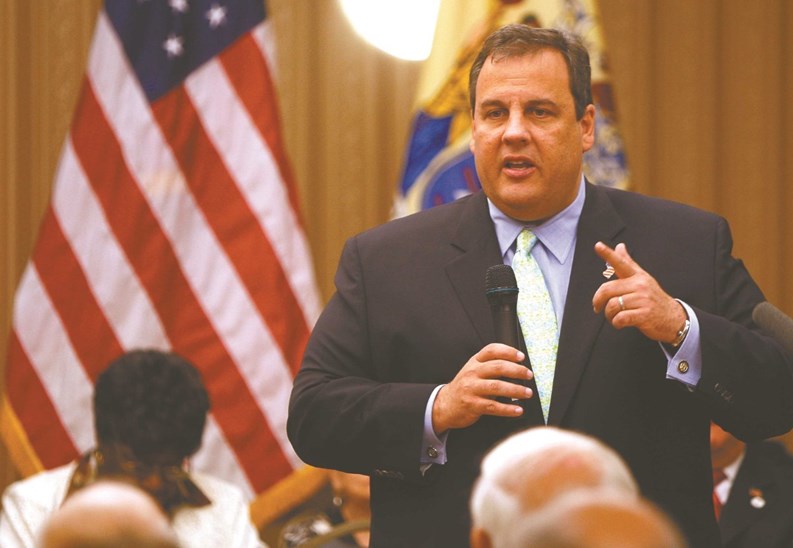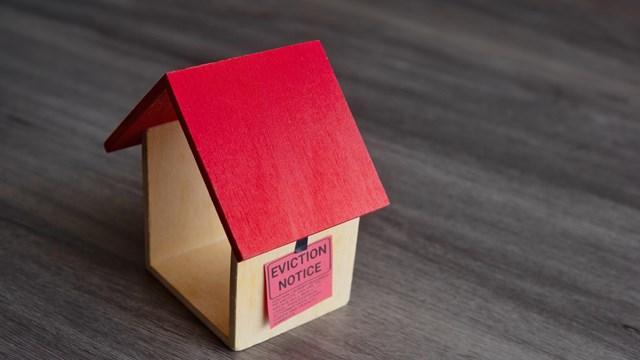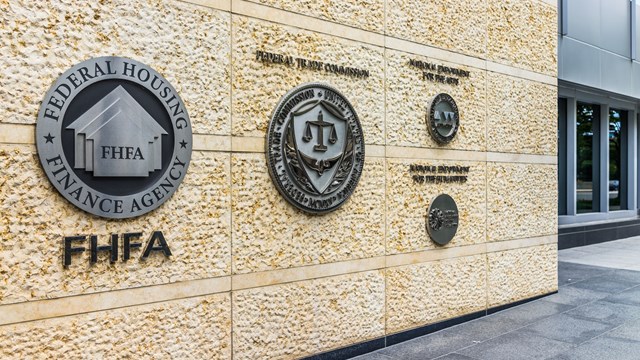New Jersey Governor Chris Christie has proposed a Fiscal Year 2011 budget plan of $29.3 billion that has many in the Garden State seeing red. Tens of thousands of New Jerseyans rallied at the Statehouse in Trenton recently to protest severe cutbacks imposed by Christie that slash education funding, reduce aid to towns and cities, and mandate unpaid state employee furloughs. With a projected 35,000 people in attendance, it was estimated to be the largest rally in state history.
In a down economy that has New Jersey facing a multi-billion dollar deficit, Christie wants teachers and union employees to consent to givebacks and matching healthcare contributions, measures which they are reluctant to agree to. New Jersey is required by its state constitution to pass a budget by July 1st.
“Today, New Jersey faces perhaps the most challenging budget in our history,” the Republican governor told the state Legislature during his budget presentation in March. “The effects of a structural budget deficit and the ongoing national recession have deteriorated our fiscal outlook and produced a $10.7 billion deficit—over one-third of our projected revenues. Our state continues to grapple with an unemployment rate of nearly 10 percent, the highest tax burden in the country, and the worst climate for business development in America,” Christie said.
No Easy Fiscal Solutions
Christie blamed over-reliance on one-time sources of revenue and the failures of past administrations to institute fiscal restraint. Spending surged 59 percent to a record $34.6 billion in fiscal year 2008. “The budget solutions I present squarely address the problems we face. But, there is no sugar-coating what needs to be done,” Christie said. “We wish this task were easier, and we recognize the fact that there are real people and families who will feel the impact of what we must do. Yet even amid the hard decisions in this proposal, you will find a commitment to protect and care for the most vulnerable among us. At a time when the magnitude of our shortfall requires reductions everywhere, this budget reflects the core value of our people.”
Under Christie’s proposal, as many as 1,300 state workers would face layoffs, including teachers—saving an estimated $8.8 million—and many education-related and social service programs would be on the chopping block. Protesters railed against cuts of after-school programs, removal of extracurricular activities like sports, art and music, free lunch and adult education programs, the elimination of housing rental rebates, health care subsidies, and more.
Controlling Spending—Collecting Revenue
State aid and grants represent two-thirds of the entire state budget. Some of the measures proposed by Christie to keep spending in check include: deferring pension payments of state employees, saving $3.1 billion; reforming the $1.11 billion Homestead Rebate Program offering a property tax credit to eligible homeowners rather than actual rebate checks; and reducing total aid to education by $820 million, due to lack of federal stimulus money in 2011.
Other steps include trimming the state workforce; exploring privatization opportunities, where available; reducing state government waste; cutting down on overtime; consolidating office space; furloughing or closing some state agencies; using in-house staff instead of outside contractors; and other efficiencies. Privatizing certain government operations is estimated to save $50 million, according to Christie.
New Jersey’s total revenues for fiscal year 2011 are expected to be $28.3 billion, or $490 million less than the original fiscal year 2010 budget. Estimated revenues are $1.2 billion lower than in FY 2009, and $4.9 billion lower than in fiscal year 2008. Additionally, the state expects that income tax, sales tax, and property tax collections, all will be down in 2010-11, along with federal grants monies from Washington.
Economic indicators suggest a slow national recovery is underway, but the momentum of the recovery slowed and may not be sustained beyond summer 2010.
Forecasts predict a $448 million drop in gross income tax collections in fiscal year 2011, and the corporation business tax, which is expected to bring in $2.145 billion will fall by $79 million, according to projections. Because of the economy, sales tax revenues are also projected to fall below estimated levels but final numbers are uncertain.
Property Tax Relief
New Jersey property taxes soared 70 percent from 1999 to 2009, and the average New Jersey household pays $7,281 a year in property taxes—the highest rate in the nation. Local spending rose 69 percent from $26.5 billion in 2001 to an estimated $44.7 billion this year, according to Christie.To combat this, Christie recommends implementing a constitutional amendment to impose a “hard” annual levy cap of 2.5 percent on additional spending. Local communities that go below or do not exceed the levy cap could bank that money as surplus to be used in future years. Local government bodies may ask voters to exceed the levy cap through referenda.
“This cap will force local governments to find waste, abuse and inefficiencies in their own operations,” said Christie. “Every community across New Jersey recognizes that it can do more with less. Now is the time to act.”
Less for Affordable Housing, Municipalities
Department of Community Affairs (DCA) Commissioner Lori Grifa acknowledged the hard budget cuts proposed by the Christie administration and asked municipalities to do more with less. The DCA’s budget allocation of $734.5 million is 34.7 percent less than fiscal year 2010.
"The state of New Jersey and the country as a whole are facing extraordinarily hard times. I know this sentiment has been expressed often in the last three years, but it bears repeating. Many people have been laid off from their jobs and have lost or face the very real prospect of losing their homes. Businesses of all sizes are strained. Construction in most parts of the state has come to a virtual halt.” Grifa said."Government has not been immune to this recession. Revenue has plunged while costs for health care benefits, energy, retirement benefits and myriad other items steadily climb. This has led to hiring freezes, furloughs and, in some cases, layoffs. Government staff at all levels is frequently being asked to do the same or more work with less people and less resources. Despite these challenges, many municipalities are finding ways to operate more efficiently and cuts costs, whether it's through shared service agreements with neighboring towns or negotiating employee contracts with the taxpayer in mind. We applaud these efforts and encourage municipalities to continue finding creative ways to run government efficiently and cost effectively,” Grifa added.
"But given the state of the economy and the difficult financial situation in which we find ourselves, Governor Christie and I are asking municipalities to do more. We understand the level of sacrifice we are asking towns to make, but we are confident they will not only overcome it, but emerge from the experience better able to tackle any challenge with which they are presented.”
Grifa said that the state formula aid for municipalities will be reduced by about $271.4 million under the proposed FY 2011 budget. None of the state's 566 municipalities will receive an increase in state formula aid, and the overwhelming majority will see a decrease.
"Governor Christie has made it clear that government cannot continue to tax and spend,” Grifa said, “especially in this recession. For this reason, the governor made the tough decision to make the reductions to state formula aid. The reductions to Consolidated Municipal Property Tax Relief Aid and Energy Tax Receipts range from 14.45 percent to 26.45 percent.”
Grifa explained that each municipality was grouped on low, medium, and high equalized tax rates and wealth, and each group was reduced by a different percent, based on the wealth/tax burden. For example, the highest tax burden/lowest wealth group was reduced 14.45 percent while the highest wealth/lowest tax burden group received a 26.45 percent reduction. All reductions were limited by capping the increase in property taxes to the average residential property owner in each municipality at $250, she said.
"I understand what some of you may be thinking,” said Grifa. ”Reductions in state formula aid will automatically result in municipalities raising taxes at the local level. I'm here to tell you that we at the Department of Community Affairs take the public's demand and Governor Christie's directive to control taxes very seriously.”
As far as housing is concerned, Christie also announced a plan to scale back state control over how New Jersey's 566 towns meet their constitutional obligation to provide affordable housing.
If enacted, some communities could avoid building low- and moderate-income housing altogether. Under his proposal, the Council on Affordable Housing (COAH), which enforces municipal affordable-housing quotas, would be abolished. Towns could instead set aside 10 percent of all new residential developments of 11 or more units for low- and moderate-income housing. And they could also if they prefer impose a fee of up to 2.5 percent of a project's fair market value, to be deposited in a housing fund. Towns could use the fund to pay, among other things, for rehabilitation projects elsewhere or they could put the monies into a state fund to underwrite rehab projects in other towns. Plans would need to be filed with DCA.
Adam Gordon, an attorney for the Fair Share Housing Center, objected to the proposal, telling The Philadelphia Inquirer, "It basically means that any town can choose to have zero affordable homes in the town because they could just collect this fee and build it somewhere else."
The inception of New Jersey's affordable-housing requirements originate in state Supreme Court rulings in 1975 and 1983 which mandated that towns had a constitutional obligation to provide affordable housing.
Debra A. Estock is managing editor of The New Jersey Cooperator.







Leave a Comment